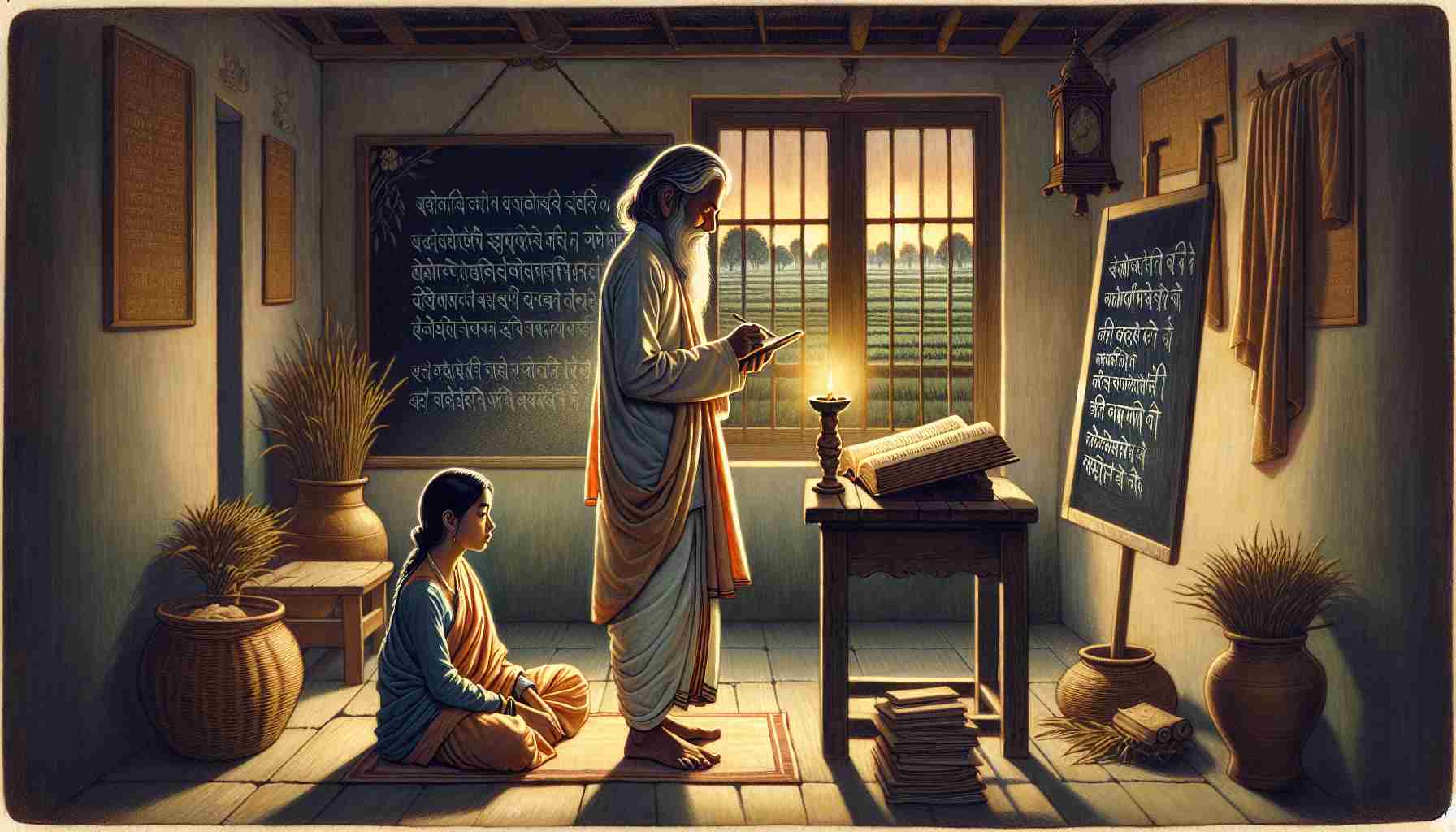

I’m Rishi, just a schoolteacher from a small village near Ujjain. There’s nothing extraordinary about me, really. I rise early, sweep the front yard, light the diya to Lord Shiva — the god of transformation and quiet strength — and walk through fields to reach the little schoolhouse where I teach seven children.
But three years ago, I nearly left it all.
I had begun to feel like dust — swept around with no direction. I taught lessons that echoed into nothing. I watched my neighbors move to cities, find "bigger lives," and I started asking the question I feared most: Is this enough?
One evening, I sat outside after evening prayers, the smell of jasmine in the air, and asked aloud, “What is my purpose?” The wind answered with silence.
I started skipping my prayers. Even stopped lighting the diya. I told myself, "Why keep up rituals if I couldn’t feel their meaning?"
Then came spring.
One morning, a student named Arvind brought me a small clay pot.
“It’s for you, sir,” he said shyly. “You teach me, like the sun grows this flower.”
His words hit something deep in me. A few days later, during class, he recited a verse I thought I’d long forgotten:
"It is better to do one’s own dharma, even imperfectly, than to do another’s perfectly." — Bhagavad Gita 3.35
I almost dropped the chalk.
That night, I walked alone by the Kshipra River. The water ran quietly, not fast or dramatic — it just flowed.
I remembered reading in the Upanishads: “As is your desire, so is your will. As is your will, so is your deed. As is your deed, so becomes your destiny.” I had been so busy chasing a “real purpose” that I missed the one unfolding daily under my feet.
The next morning, I stood before the students, watching them hum the morning shloka. I wasn’t just their teacher. I was their link in the ancient chain — one breath in the eternal rhythm of Sanatana Dharma, a way of living that flows with truth, duty, and inner order.
From the Ramayana, I recalled how Lord Rama silently accepted exile — not as punishment, but as dharma. Not everything "big" is loud. Purpose grows quietly like dawn.
I began lighting my diya again. Same matches. Same ghee. But now, my heart was lit too.
Each evening, I whisper to the flame, “May I walk in truth.” And somehow, I do.
Now, when the doubts come — and they still do — I remind myself of Krishna’s words to Arjuna: “Perform your prescribed duty, for action is better than inaction.” — Bhagavad Gita 3.8
I understand now: Dharma isn't a goal. It's a path. A walk I take each day, with steady feet and simple offerings.
And on that path, I’ve found my purpose — not in noise, but in the quiet work of love.
I’m Rishi, just a schoolteacher from a small village near Ujjain. There’s nothing extraordinary about me, really. I rise early, sweep the front yard, light the diya to Lord Shiva — the god of transformation and quiet strength — and walk through fields to reach the little schoolhouse where I teach seven children.
But three years ago, I nearly left it all.
I had begun to feel like dust — swept around with no direction. I taught lessons that echoed into nothing. I watched my neighbors move to cities, find "bigger lives," and I started asking the question I feared most: Is this enough?
One evening, I sat outside after evening prayers, the smell of jasmine in the air, and asked aloud, “What is my purpose?” The wind answered with silence.
I started skipping my prayers. Even stopped lighting the diya. I told myself, "Why keep up rituals if I couldn’t feel their meaning?"
Then came spring.
One morning, a student named Arvind brought me a small clay pot.
“It’s for you, sir,” he said shyly. “You teach me, like the sun grows this flower.”
His words hit something deep in me. A few days later, during class, he recited a verse I thought I’d long forgotten:
"It is better to do one’s own dharma, even imperfectly, than to do another’s perfectly." — Bhagavad Gita 3.35
I almost dropped the chalk.
That night, I walked alone by the Kshipra River. The water ran quietly, not fast or dramatic — it just flowed.
I remembered reading in the Upanishads: “As is your desire, so is your will. As is your will, so is your deed. As is your deed, so becomes your destiny.” I had been so busy chasing a “real purpose” that I missed the one unfolding daily under my feet.
The next morning, I stood before the students, watching them hum the morning shloka. I wasn’t just their teacher. I was their link in the ancient chain — one breath in the eternal rhythm of Sanatana Dharma, a way of living that flows with truth, duty, and inner order.
From the Ramayana, I recalled how Lord Rama silently accepted exile — not as punishment, but as dharma. Not everything "big" is loud. Purpose grows quietly like dawn.
I began lighting my diya again. Same matches. Same ghee. But now, my heart was lit too.
Each evening, I whisper to the flame, “May I walk in truth.” And somehow, I do.
Now, when the doubts come — and they still do — I remind myself of Krishna’s words to Arjuna: “Perform your prescribed duty, for action is better than inaction.” — Bhagavad Gita 3.8
I understand now: Dharma isn't a goal. It's a path. A walk I take each day, with steady feet and simple offerings.
And on that path, I’ve found my purpose — not in noise, but in the quiet work of love.